The last time you had a checkup at the doctor’s office, were you told to watch your cholesterol levels?
Have your cholesterol levels started to rise along with symptoms of menopause? Is there a connection between the two?
Cholesterol is an important part of your body. It helps maintain healthy cells, but it can also cause harm if it gets too high, which may be linked to estrogen levels. Let’s take a closer look at the connection between cholesterol, estrogen, and menopause.
What Is Cholesterol?
Cholesterol is a fatty substance in your body that has many important functions. It helps your body produce hormones and make vitamins. There are two types of cholesterol:
- High-density lipoprotein (HDL) or “good” cholesterol
- Low-density lipoprotein (LDL) or “bad” cholesterol
HDL helps remove bad cholesterol from our blood vessels. LDL is the main cholesterol carrier in our bodies and leaves behind plaque on vessel walls.
What Is Menopause?
Menopause is a natural change that takes place in a woman’s body when menstrual periods stop. It typically occurs between the ages of 45 and 55, and for some, as early as age 30. Menopause results from the decrease in estrogen production that happens when the ovaries stop making eggs.
During this transition, many changes arise in your body as it adjusts to the decrease in estrogen.
The Estrogen Connection: Cholesterol Levels During Menopause
As estrogen levels drop during menopause, so do the body’s HDL levels (“good” cholesterol). This leads to an increase in LDL cholesterol (“bad” cholesterol) and a greater chance of developing heart disease, the #1 cause of death for postmenopausal women. Estrogen levels may continue to drop for several years after menopause, so you should watch and manage cholesterol levels with your doctor.
How Can You Control Cholesterol?
To manage cholesterol levels, it is important to know your numbers. Get a blood test at least once a year. If levels are high, there are many lifestyle changes you can make to lower them.
A few of these are:
- Exercise regularly. According to the American College of Obstetricians and Gynecologists (ACOG), exercise promotes the health of your blood vessels and strengthens your heart. This will help boost your HDL levels and lower blood pressure. Aim for at least 30 minutes of exercise, five days a week.
- Eat a healthy diet with lots of fruits and vegetables. Eating foods low in saturated and trans fats, cholesterol, and added sugars is an excellent way to help lower your cholesterol.
- Maintain a healthy weight and be aware of any changes. If you’re overweight or obese, losing weight often helps improve your cholesterol levels.
- Stop smoking. Smoking is a big risk factor for heart disease, according to the ACOG. It decreases HDL levels and may increase the levels of triglycerides in your blood.
How BHRT May Help
One way that may help keep your cholesterol levels in check during menopause is by taking a medication that contains estrogen. Bioidentical hormone replacement therapy (BHRT) is sometimes used to balance estrogen levels. It involves using bioidentical hormones to replace naturally declining hormones as you age. These hormones have the same molecular structure and act the same as human hormones.
Compounding pharmacies like Belmar Pharmacy can tailor medication for you based on your doctor’s prescription. Some studies shows that BHRT may help:
- Decrease levels of total cholesterol, LDL and Apolipoprotein B (Apo B)
- Increase HDL cholesterol levels
- Decrease triglycerides
- Increase the elasticity of blood vessels, allowing them to widen and let blood flow more freely
If you’re suffering from a hormonal imbalance due to low estrogen levels, BHRT may be a good option. Talk to your doctor to see if it may be something you want to try. Remember, maintaining healthy cholesterol levels is important for your overall health, especially before, during, and after menopause.
Don’t leave your health to chance! Be proactive; know your numbers and reduce your risk. Your heart will thank you.
